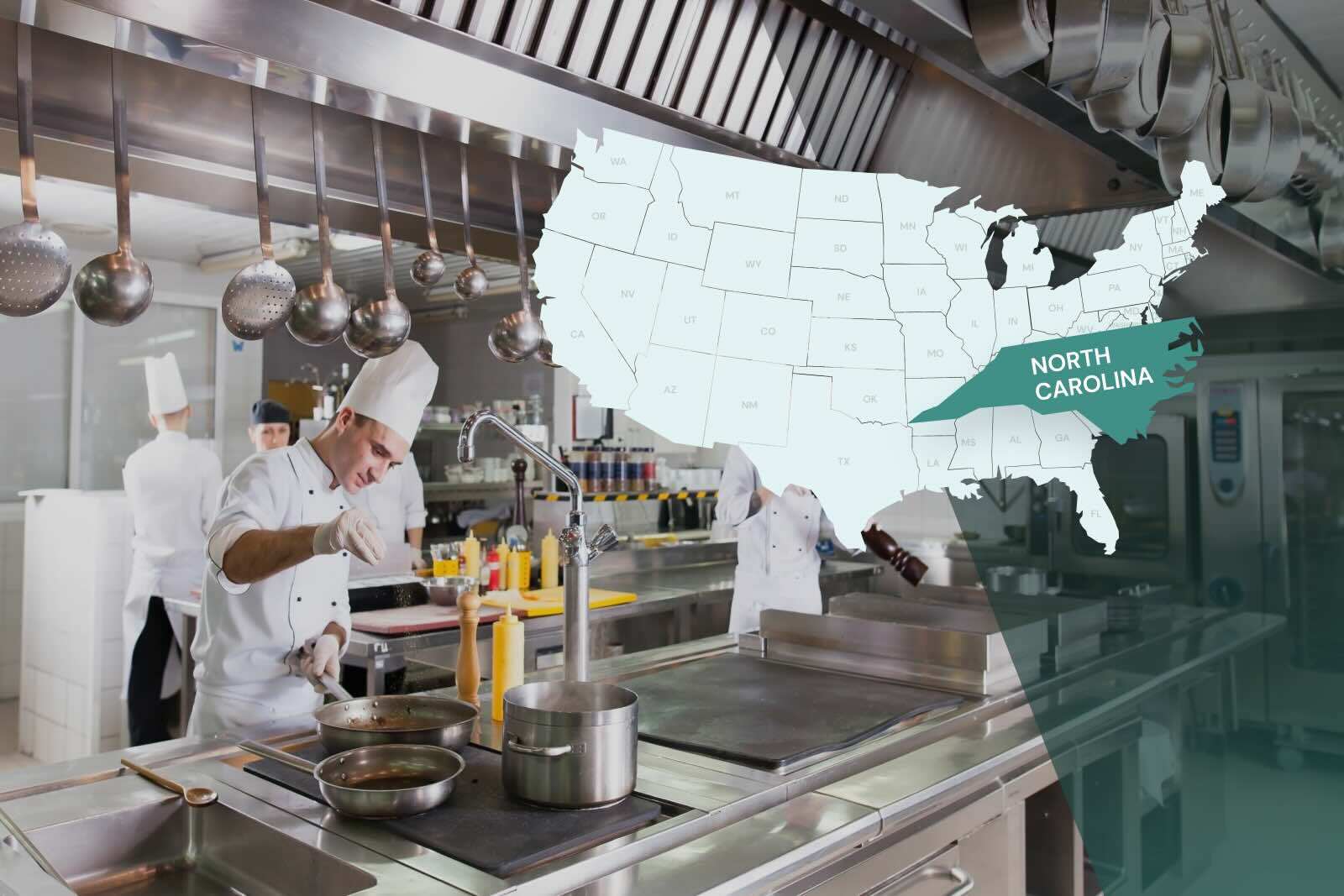Freshly caught shrimp, juicy peaches, and tangy barbeque are hallmarks of North Carolina’s food scene. However, no one would be able to enjoy the cuisine of the Carolinas if foodservice establishments did not first consider customers’ safety.
But who is responsible for upholding food safety standards in North Carolina? Read on to learn about the state’s training and certification requirements, including:
Which version of the FDA Food Code does North Carolina use?
Does North Carolina require food handler training?
Does North Carolina require allergen awareness training?
Does North Carolina require food manager certification?
Which version of the FDA Food Code does North Carolina use?
The FDA Food Code is not a mandate for food safety standards; it is a set of recommendations from the federal government that each state can refer to when establishing its guidelines. The Food Code is updated every two years, with periodic updates released along the way.
State and local authorities can choose which guidelines they adopt and which version of the FDA Food Code they use when developing their requirements.
While the most current edition of the Food Code was released in 2022, the North Carolina Department of Health and Human Services has adopted the 2017 FDA edition.1,2
Considering that some states have chosen to adopt the 2001 version of the FDA Food Code, North Carolina is on top of things!
Read on to learn about the training and certification requirements in North Carolina.
Does North Carolina require food handler training?
No, food handler certificate training is not required in North Carolina. However, some establishments may require their teams to undergo training during the onboarding process.
If you’re interviewing for a new position, it may make your application more appealing to managers if you already have a food handler card.
Does North Carolina require allergen awareness training?
No, formal allergen awareness training is not required in North Carolina. However, anyone seeking credentials as a certified food protection manager must demonstrate knowledge of allergens during the certification process.
An establishment’s person in charge is responsible for training their team on food allergen best practices.
Does North Carolina require food manager certification?
Yes, establishments are required to have a certified food protection manager (CFPM) on-site during all hours of operation. These certified individuals carry the bulk of the responsibility regarding food safety.
Anyone who needs a food manager certification must pass an ANAB-accredited exam and renew their credentials every five years.
Certified food protection managers must ensure their team knows and upholds food safety best practices. Managers should train staff on effective handwashing, safe food handling, and allergen awareness.3
The takeaway
In North Carolina, training is not required for most people working in the food industry, which makes CFPMs essential to preventing foodborne illness outbreaks. If you have earned your food manager certification, you know how critical your leadership is! If your credentials are expiring soon or you need to train your team, Trust20’s accredited products can help. Food safety is essential to every establishment’s success–do you have the right tools to succeed?
Sources
-
North Carolina Department of Health and Human Services: Food Protection and Facilities Branch
-
FDA: 2017 Food Code
-
The North Carolina Department of Health and Human Services: The North Carolina Food Code





.png)

.png)
